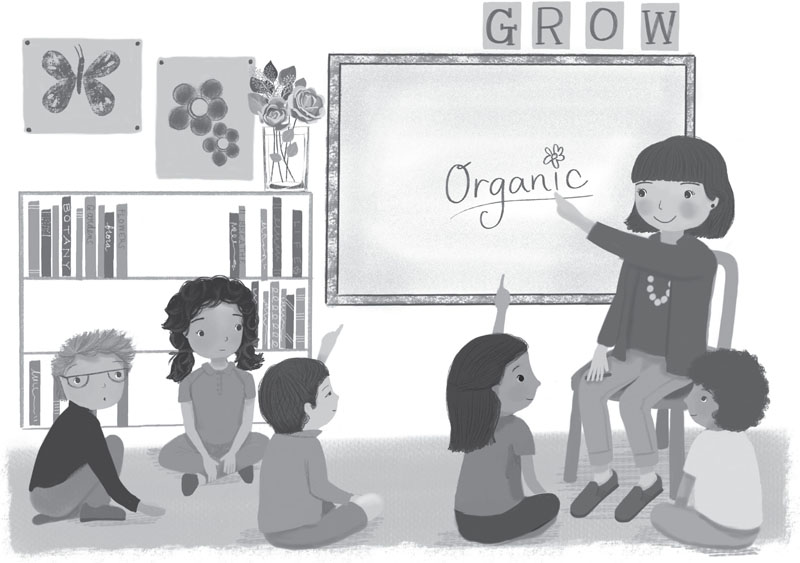
The next day in class, Ms Divis puts a word on the board.
Or-gan-ic.
‘What does it mean?’ she asks.
Sophia is always the quickest hand in the class.
‘It’s when a farmer grows our food without spraying for bugs.’
Ms Divis smiles. She likes Sophia’s answer. ‘We can all be farmers,’ Ms Divis says.
Zola’s Nonna Rosa knows about or-gan-ic growing.
She says that there are other ways to keep snails and slugs and their silvery slime away. Sometimes Nonna puts eggshells in her garden to keep out the creepy-crawlies.


‘This is what St Odo’s garden looked like when I was a little girl,’ Ms Divis says, showing them photos on the big screen.
It’s the most beautiful garden Zola has ever seen. She knows most of the flowers because secretly they’re her favourites.


They smell better than any others.
Lavender. Roses. Honeysuckle. Frangipanis. Lemon myrtle.
There are also bushes and plants in square beds above the ground.
Zola likes the wooden signs, painted in purples and yellows, pitched into the soil.
One says, Herbs.
Another says, Onions.

‘When I was a little girl, it took a lot of hard work to get the garden to look like the one in these photos,’ Ms Divis says.
‘Everyone helped. Mums. Dads. Families and friends. We were a community. During summer, we celebrated with a picnic every first Sunday of the month.’

Zola can see the old community garden from where she sits.
Would anyone picnic there today with their family?

‘How about all of you try to find a family photo of the St Odo Sunday picnics?’ Ms Divis says. ‘We can peg them across the room and try to imagine what it was like here before you were born.’
